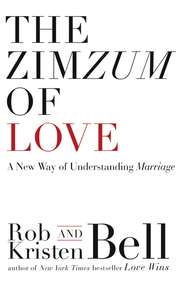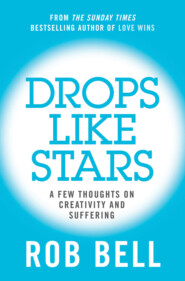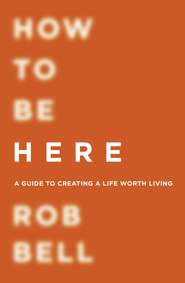По всем вопросам обращайтесь на: info@litportal.ru
(©) 2003-2024.
✖
Jesus Wants to Save Christians: A Manifesto for the Church in Exile
Автор
Год написания книги
2018
Настройки чтения
Размер шрифта
Высота строк
Поля
But the Bible still has a lot to say about empires. The Bible is always asking about the prospects of the poor. The vulnerability index is the measure that matters most in God’s economy. Read seriously, the Bible confronts the reader with the God of the oppressed.
We want you to discover the Bible as its own best commentary. We offer you a way to read the Bible that doesn’t require a library or a preacher or a politician or an academic to interpret for you. Once justice is seen as the thread woven into the fabric of biblical history, the whole Bible becomes much clearer. Justice is the issue when God redeems Israel from Pharaoh. Justice is at the heart of the Sinai law and justice is what Israel must show the world as a kingdom of priests. Justice is the measure the Jews failed to meet in their days of power and empire in Jerusalem. It was justice the prophets proclaimed as the way of return during the exile of the Jews in Babylon and it was justice that Jesus incarnated.
Some readers have told me that after reading the book it was still not clear what they should do with this new perspective on the Bible. Mostly, I think that is part of the adventure of discovery that we hope God leads you on. For me, though, I can say that when I look around and see what God is doing in the world, I tend to see, first, the people and ministries who incarnate this Exodus ethic. I’m thinking of friends like David and Marianne and Sam and Dr. Pieter.
David is a forty-two-year-old man in northern Kenya who does whatever it takes to help the Turkana suffering without food and water. David embodies the cry of the oppressed that God uses to kick-start redemptive history. David is pouring his life out to save Turkana.
Marianne is a recent Bible college graduate who travels the world photographing development professionals, capturing their amazing work in images that motivate people to action. Marianne’s eye for the human story makes the plight and the possibilities of the poor live in high definition. Marianne helps us hear the cry of the oppressed.
Sam is a teacher from rural Pennsylvania who moved to Baltimore’s inner city with a tribe of others just like him. Sam and co., with all their middle-American gifts, have set out to love on Baltimore neighborhoods most people abandoned a generation ago. Sam is the man who hears what God hears and joins what God is doing.
Dr. Pieter left his home in Johannesburg to discover the causes of child mortality in Mozambique. Dr. Pieter and his alternative community of life-giving workers have literally moved the needle on child mortality in southern Mozambique.
A doctor battles the mass murdering, malarial mosquito. A teacher spends his education on embattled Baltimore public schools. A poor Turkana man tries to save his ancient people from extinction. A young suburbanite with a camera takes aim at American indifference. Each one and countless others following Jesus out of the exile of irrelevance into what God is doing in history—redeeming people and using them to save others.
We hope this paperback edition of Jesus Wants to Save Christians helps you encounter the Bible in a new way. Like a trip to the moon, may you see the big picture and may the God of the oppressed lead you through these disorienting days of teetering empire.
—Don Golden
November 2011
Introduction to the Introduction (#u56551c5c-f5d2-54ee-9544-3092982c74f8)
This is a book about a book.
The structure follows the narrative of the Bible, which means that there is a progression here, each chapter building on the one before it. If you skip ahead, it’s not going to make much sense.
Before we begin, a disclaimer and a shout-out or two.
First, the disclaimer.
In the scriptures, ultimate truths about the universe are revealed through the stories of particular people living in particular places. As this book explores, the nation of Egypt and the Jewish people feature prominently in the biblical narrative. When we write of Egypt then, we are not writing about Egypt today. When we mention the Jews then, we are not speaking of our Jewish friends and neighbors today. We realize that some of these words, such as Egypt and the Jews, have power to evoke feelings and thoughts and attitudes about the very pain and division in our world that this book addresses. We join you in this tension, believing that the story is ultimately about healing, hope, and reconciliation.
And now, a shout-out. This is a book of theology. The word theology comes from two Greek words: theo, which means “God,” and logos, which means “word.”
Theology, a word about God.
Anybody can do theology.1 (#litres_trial_promo)
This book is our attempt to articulate a specific theology, a particular way to read the Bible, referred to by some as a New Exodus perspective. One New Exodus scholar is a British theologian named Tom Holland, who has done pioneering work in this approach.2 (#litres_trial_promo) We are grateful to him for his groundbreaking take on the story of Jesus. He has liberated profound truths about what it means to be human, and we celebrate that with him.
One more shout-out, which is actually a massive shout-out. We are part of a church, a community of people learning to live the way of Jesus together. For their love and support and critique and questions and example and insight and hope, we are deeply grateful.
You know who you are.
Grace and peace to you.
And thanks.
Now, on to “Air Puffers and Rubber Gloves.”
Introduction Air Puffers and Rubber Gloves (#u56551c5c-f5d2-54ee-9544-3092982c74f8)
The first family was dysfunctional.
At least, that’s the picture painted by the storyteller in the book of Genesis.
The first son, Cain, was angry with the other first son, Abel, because “the LORD looked with favor on Abel and his offering, but on Cain and his offering he did not look with favor.”1 (#litres_trial_promo)
Cain said to his brother, “Let’s go out to the field.” And when they went, Cain killed Abel.
According to the story, Cain “worked the soil” while Abel “kept flocks.” One was a farmer, the other was a shepherd.
A farmer is settled.
A farmer has chosen a piece of land and settled there because he’s decided that this land can best support his crops. He has a strong sense of boundaries—this land, the land that he lives on and farms, is his land.
A shepherd is nomadic.
A shepherd goes wherever there is food for his flock. A shepherd wanders from place to place. A shepherd doesn’t have a strong sense of boundaries, because he sees all land as a possible spot for him to stop and feed his flock.
It wouldn’t take long for the shepherd and his flock to cross onto the property of the farmer. And that would raise the question, Whose land is it, anyway?
This question would have many dimensions—economic, political, religious, social—let alone the personal aspects of ownership and property and progress and wealth. The story of these two first sons is actually a story about progress, innovation, and the inevitable forward movement of human civilization.2 (#litres_trial_promo)
This Genesis account reflects the transition that was occurring in the time and place in which this story was first told. A seismic shift was occurring as human society transitioned from a pastoral, nomadic orientation to an agricultural one. This was a huge change that did not come without a lot of strife.
And, occasionally, murder.
As a result of the murder, the text says, “Cain went out from the LORD’s presence and lived in the land of Nod, east of Eden.”3 (#litres_trial_promo)
East of Eden.
There is a place called Eden, a paradise, a state of being in which everything is in its right place. A realm where the favor and peace of God rest on everything.
And Cain is not there. He’s east of there.
And he’s not only east of Eden, but in chapter 4 of the book of Genesis, the text says that he was “building a city.”4 (#litres_trial_promo)
It’s not just that he’s east of where he was created to live, but he’s actually settling there, building a city, putting down roots. The land of his wandering has become the location of his home. And then several chapters later, the Bible says that the whole world had one language and a common speech “as people moved eastward.”5 (#litres_trial_promo)
The writer, or writers, of Genesis keeps returning to this eastward metaphor,6 (#litres_trial_promo) insisting that something has gone terribly wrong with humanity, and that from the very beginning humans are moving in the wrong direction.7 (#litres_trial_promo)
God asks Adam, “Where are you?”8 (#litres_trial_promo)
And the answer is, of course, “East.”
East of where he’s supposed to be. East of how things are meant to be.











